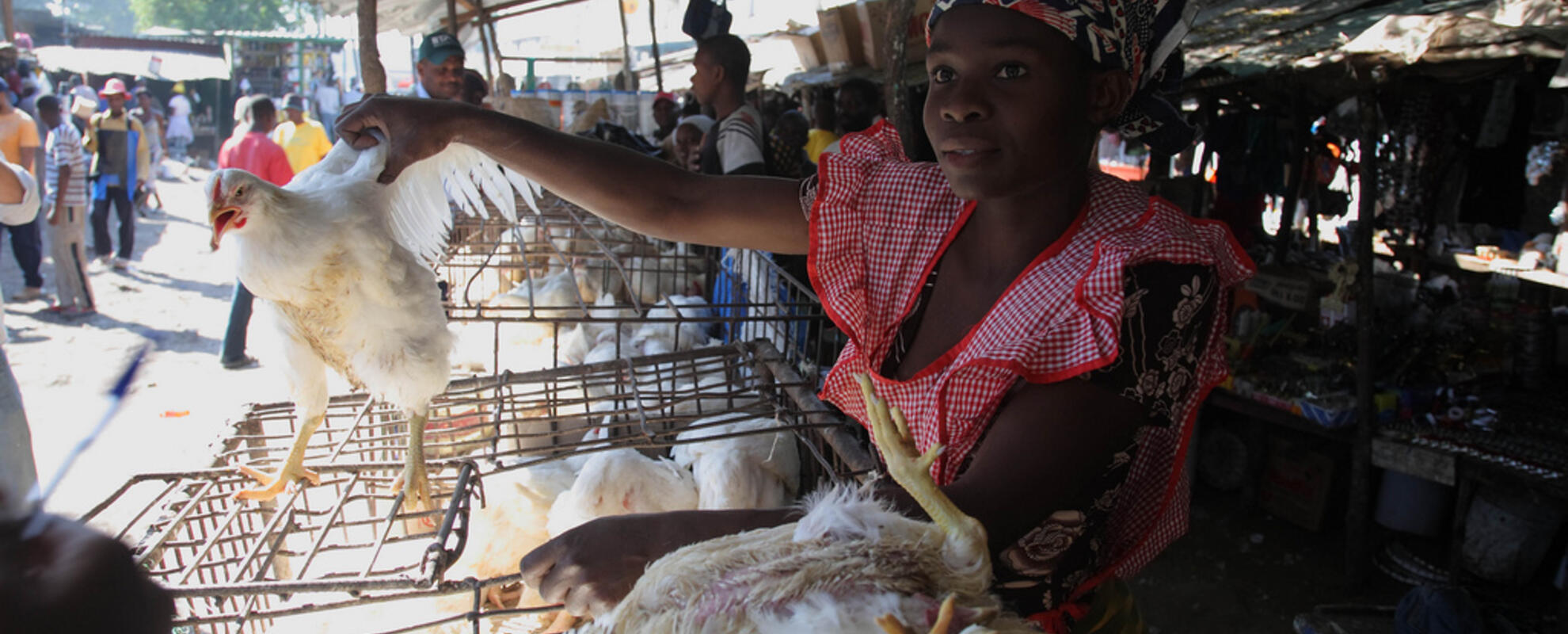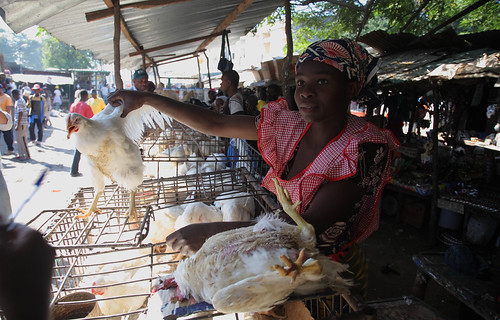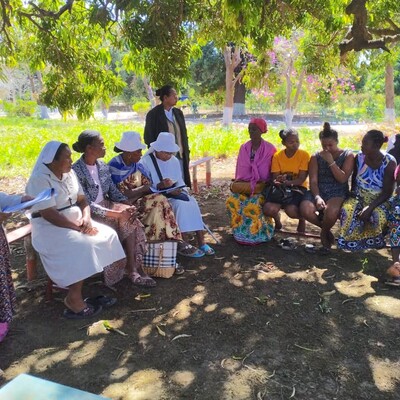
Despite contamination concerns, Africa must embrace ‘wet markets’ as key to food security
At the Xipamamime traditional market, in Maputo, trader Augusta Thomas sells chickens (photo credit: ILRI/Mann).
A new compilation of 25 studies in Africa finds that informal markets provide essential sources of food and income for millions of poor, with milk and meat that is often safer than supermarkets.
Misguided efforts to control the alarming burden of food-related illnesses in low-income countries risk intensifying malnutrition and poverty — while doing little to improve food safety. Blunt crack-downs on informal milk and meat sellers that are a critical source of food and income for millions of people are not the solution.
That’s a key finding of a new book released today by the International Livestock Research Institute (ILRI) and partners — Food Safety and Informal Markets: Animal Products in Sub-Saharan Africa—that probes the complicated world of traditional or ‘informal’ markets in livestock products. These are often called ‘wet’ markets because they use so much water in cleaning due…
View original post 1,467 more words






















